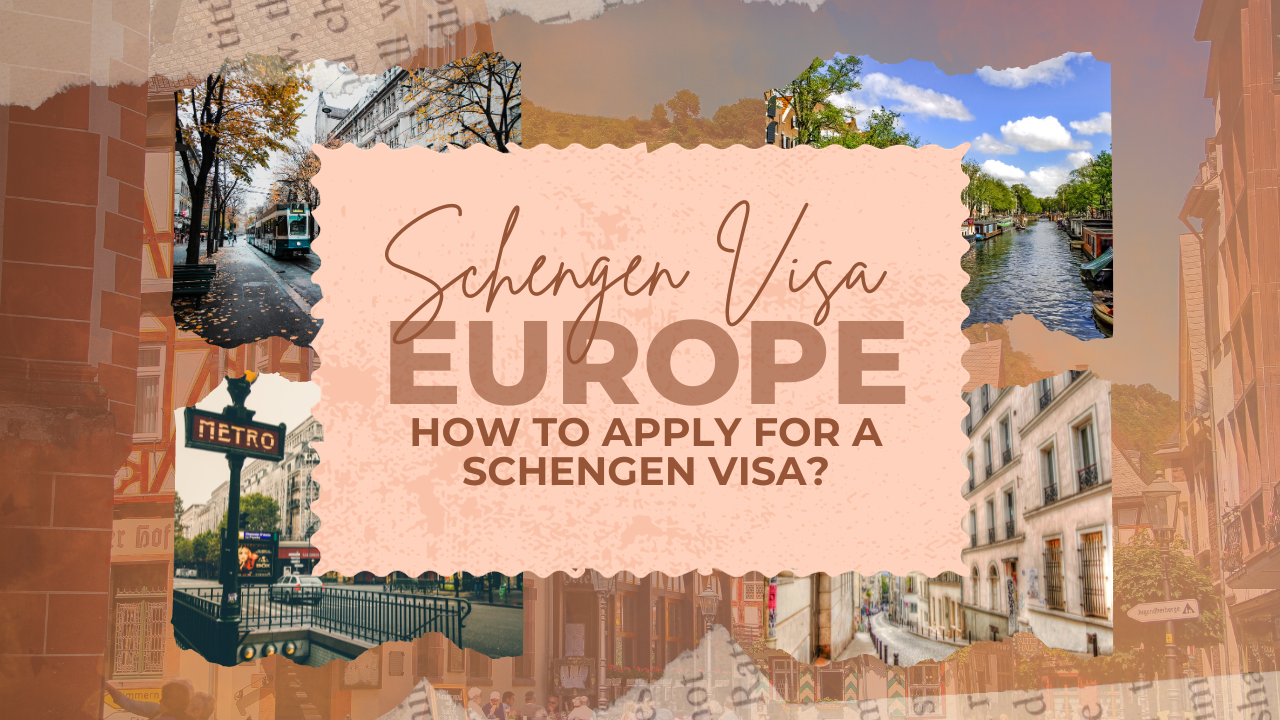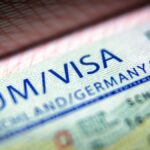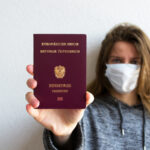The prospect of traveling to the Schengen Area in Europe is incredibly exciting, but for most international travelers, it comes with the mandatory requirement to apply for a Schengen Visa. Navigating the Schengen visa application process may seem daunting, but with the right guidance, it can be a smooth and straightforward experience. This comprehensive guide will walk you through the steps, requirements, and important details you need to know to successfully apply for a Schengen Visa.
Determine the Schengen Visa Type You Need
Schengen Visa is categorized based on the purpose of your visit. You must apply for the specific visa type that corresponds to your travel purpose. Here are the most common Schengen Visa types:
- Transit Visa
- Visa for Culture and Sports activities
- Tourist Visa
- Visitor Visa
- Business Visa
- Journalists Visa
- Medical Visa
- Official Visit Visa
- Study Visa
Identify Where to Submit Your Application
The location where you submit your Schengen Visa application depends on the regulations of the Schengen country you plan to visit. You may need to apply for a Schengen Visa at one of the following locations:
- The embassy of the destination country
- A consulate of the destination country
- A visa center outsourced by the embassy of the destination country
- The embassy/consulate of another Schengen country handling visa submissions for your destination country
Your destination country, in this context, refers to the Schengen country where you intend to spend the majority of your time. The rules are as follows:
- If you’re visiting only one Schengen country, apply at its embassy/consulate/visa center.
- If you’re visiting multiple Schengen countries, apply based on your length of stay in each:
- Apply at the embassy/consulate/visa center where you’ll spend the most time if your stay in each country varies.
- Apply at the embassy/consulate/visa center of the first Schengen country you’ll enter if you’ll spend an equal amount of time in each.
Time Your Application Right
To ensure a smooth application process, you should be mindful of the time frames to apply for a Schengen Visa:
- The earliest you can apply for a Schengen Visa is minimum six months before your intended trip.
- The latest you can apply for a Schengen Visa is no more than 15 working days before your travel date.
- It’s recommended to apply for a Schengen Visa at least three weeks before your trip to allow sufficient processing time.
Get an Appointment
Before you can proceed with your Schengen Visa application, you’ll need to schedule an appointment with the relevant consulate or visa center. Many countries provide the option to book appointments online, while in others, you may need to visit the embassy or consulate in person to arrange your appointment.
Complete the Visa Application Form
To apply for a Schengen Visa, you will be given Schengen Visa application form that follows a uniform format, regardless of the specific Schengen country you’re applying to. When completing the form, you’ll need to provide essential information about:
- Your personal details
- Background information
- The purpose of your visit to the Schengen Area
- Other relevant details about your trip
It’s important to remember the following when filling out the form:
- Download and complete the most recent version of the application form.
- Fill in all the required fields; for those not applicable to your case, use “NA” (No Answer).
- You’ll need to print and sign the form twice.
- If you’re a minor, your parents must provide written consent and sign the corresponding section on the application form.
Compile the Required Documents
Your Schengen Visa application will require specific documents, classified into two main groups:
Standard Required Documents:
These documents are standard for all visa applications and include:
- The visa application form.
- A valid passport.
- Two identical passport photos.
- Travel insurance policy, which you can often purchase online.
- Round trip reservation or flight itinerary with entry and exit dates from the Schengen Area.
- Proof of accommodation.
- Evidence of sufficient financial means, among others.
Visa-Specific Requirements:
These documents vary based on the specific visa type and may include additional documentation unique to your purpose of travel. Additionally, some Schengen member states may have their own extra requirements for visa applicants.
Take a look at our list of documents required for Schengen Visa applications, which covers standard requirements and visa-specific requirements for each visa type.
Attend the Visa Interview
On the day of your appointment, arrive on time at the designated facility for your visa interview. During this interview, you’ll meet with a visa consular who will review your documents and ask you questions about your trip. It’s crucial to provide accurate and consistent answers that align with the information on your application form and supporting documents.
Here are some common questions you might encounter during the interview:
- Which Schengen countries do you plan to visit?
- Do you have family or friends residing in Europe?
- What is the purpose of your visit?
- Who will be financially responsible for your trip?
- Are you married? If so, what is your spouse’s occupation, and how long have you been married?
- Do you have children? If so, how old are they, and what are their occupations?
- How long do you plan to stay in Europe?
- Where will you be staying?
- What is your educational background?
- Where do you work, and for which company?
Pay the Visa Fee
To initiate your Schengen visa application, you will be required to pay a non-refundable administration fee. These fees are uniform across Schengen member countries and are generally fixed unless revised collectively by the Schengen states. As of now, the standard Schengen visa fee stands at €80 per person. However, certain categories of applicants, such as children and specific cases, may be eligible for reduced fees or complete exemptions. Make sure to consult the list of Schengen visa fees, reductions, and exemptions to determine if you fall into any of these categories.
Wait for an Answer to Your Application
After submitting your Schengen visa application, the next step is to await a response from the relevant authorities. Typically, Schengen visa processing takes up to 15 days. However, there may be instances where it takes longer, potentially extending to 45 days, particularly for citizens of certain countries.
If Your Schengen Visa Is Approved
Upon receiving your Schengen visa, it’s crucial to thoroughly understand the details on the visa sticker, including the duration it allows you to stay in Europe. Overstaying your welcome in the Schengen Area can have legal consequences.
Additionally, to enhance your travel experience to Europe, we recommend checking out articles like “How to Find Low-Cost Flights to Europe” and “What Do You Need to Pack When Traveling to Europe.” These resources will not only help you save money but also ensure a more enjoyable journey to Europe. Have a fantastic trip to Europe!
If Your Schengen Visa Gets Rejected
In the unfortunate event of your visa application being denied, carefully review the reason for the refusal. If you believe the decision to be unjust or incorrect, you can appeal the visa rejection. Alternatively, if the reason for denial was related to deficiencies in your application, you may reapply for a Schengen Visa, ensuring that you address the shortcomings.
Need to Stay More Than 90 Days in Europe?
For those seeking an extended stay in Europe beyond 90 days, you must apply for a National Visa at the embassy or consulate of the specific Schengen country like Germany, Paris, or wherever you intend to stay. A National Visa permits you to reside in Europe for a maximum period of 12 months.
You Are All Set Go!
With this guide, you’ll be well-prepared to navigate the Schengen Visa application process, making your journey to the enchanting Schengen Area as smooth and stress-free as possible. Remember, each Schengen country may have specific variations and requirements, so be sure to check with the relevant embassy or consulate for any country-specific information. Safe travels!
FAQs
What if there is no embassy/consulate of a specific Schengen country in the applicant’s place of residence?
In some third countries, certain Schengen countries may lack a local embassy or consulate. However, this is not a problem, as there are representatives of the Schengen country’s interests in these cases. They are responsible for issuing the required visa. If your visa is denied due to documentation or eligibility issues, you may also apply for a Schengen Visa at the embassy/consulate of your desired destination in a neighboring country.
Can I apply for a Schengen visa in a country where I am not a resident?
Yes, you can apply for a Schengen visa in a country where you are not a resident. However, you will need to provide a valid reason for applying from that specific country. When submitting your application, you must attend the designated appointment in person. Accompaniment is only allowed for minors, individuals with health concerns, or those with limited mobility. If you fail to attend the appointment without 48 hours’ notice, your request will be canceled, and you’ll need to reapply for a Schengen Visa.
What if there is no embassy/consulate of the designated country in my homeland?
In some countries, there may be no embassy or consulate for the specific Schengen country you need a visa from. However, similar to the previous cases, embassy/consulate representatives of the country representing the interests of the Schengen country are responsible for issuing the required visa.
Do I have to hand in the documentation personally to the embassy/consulate?
Yes, you must personally submit the required documentation to the embassy or consulate when you apply for a Schengen visa.
What should I do if I need to extend the Schengen visa?
If you require an extension to your Schengen visa due to legitimate reasons, be they personal, occupational, medical, or other factors, you must approach the relevant institutions in your Schengen country of residence. Applying for an extended Schengen visa grants you the right to revisit the Schengen territory initially permitted by the original visa. However, an extended visa should not allow your stay to exceed 90 days within a 180-day period.





















